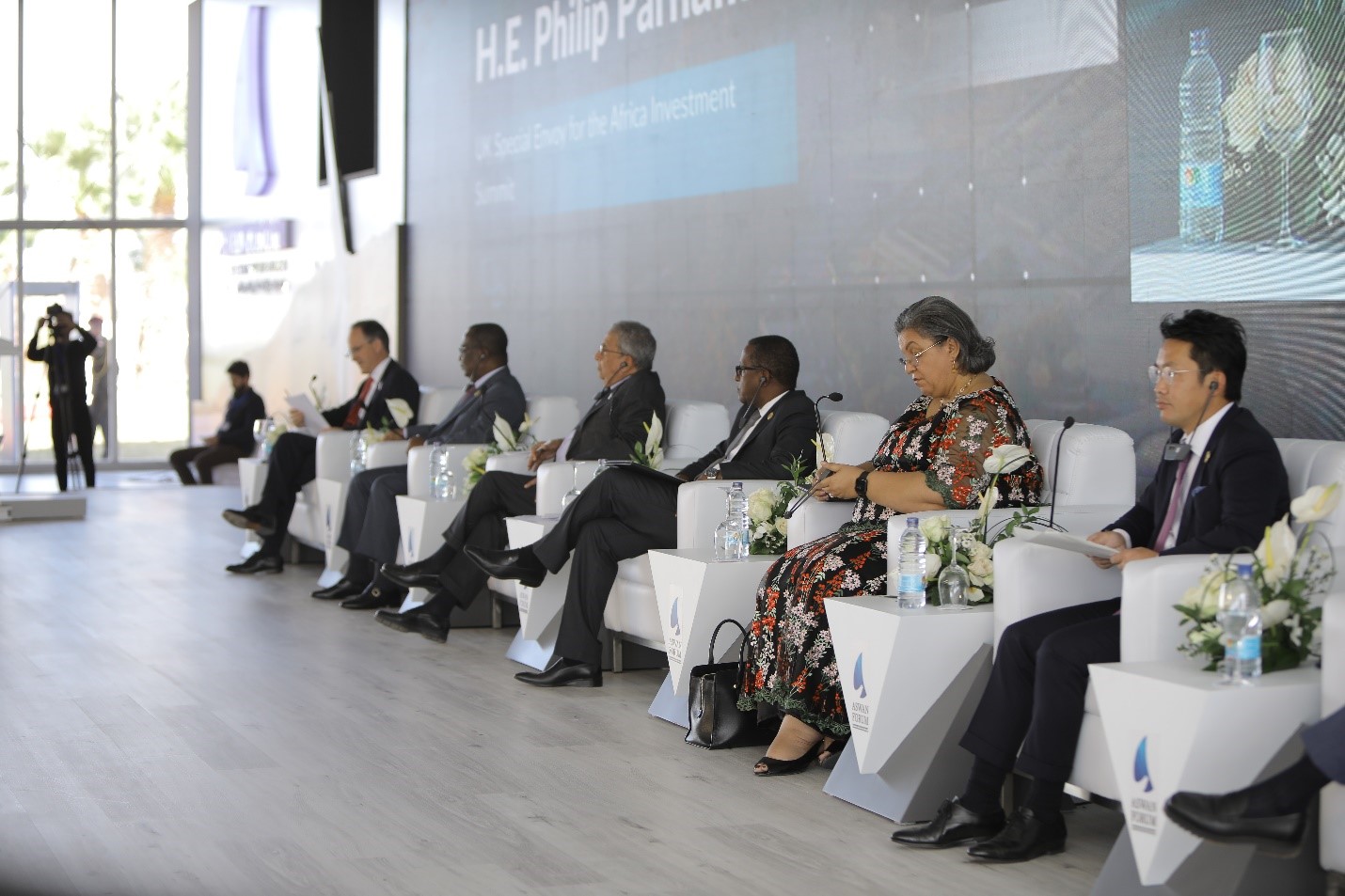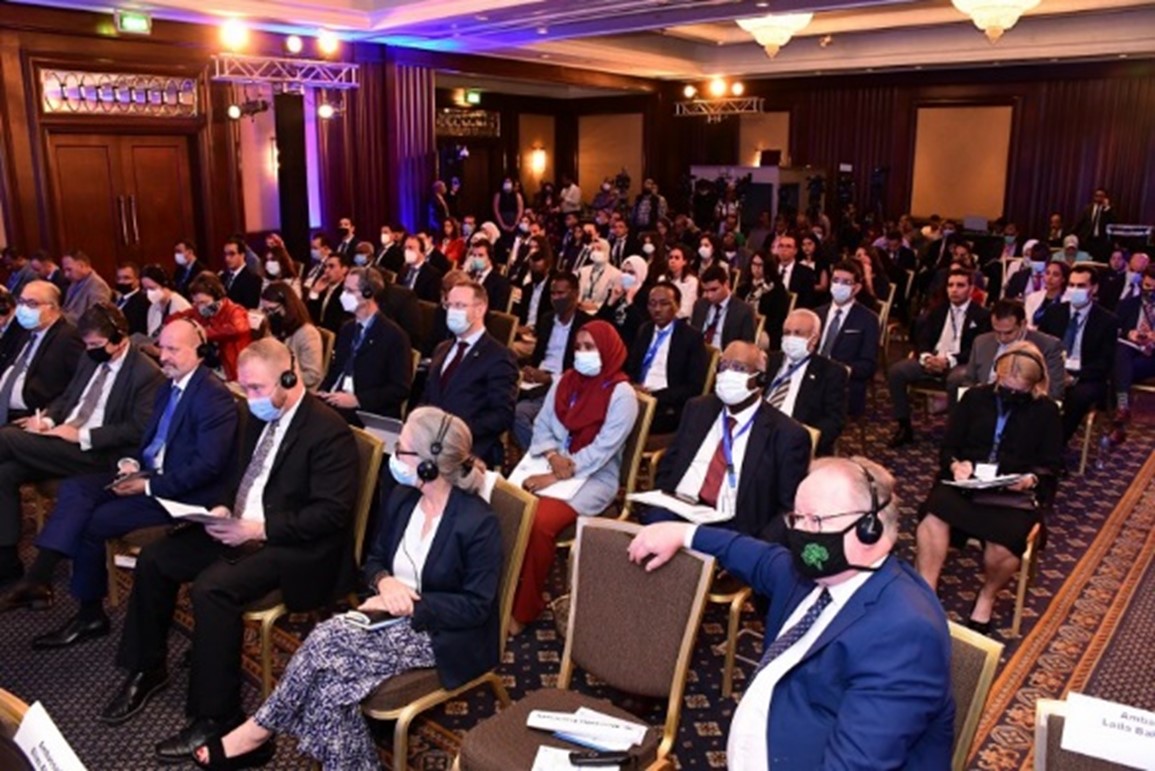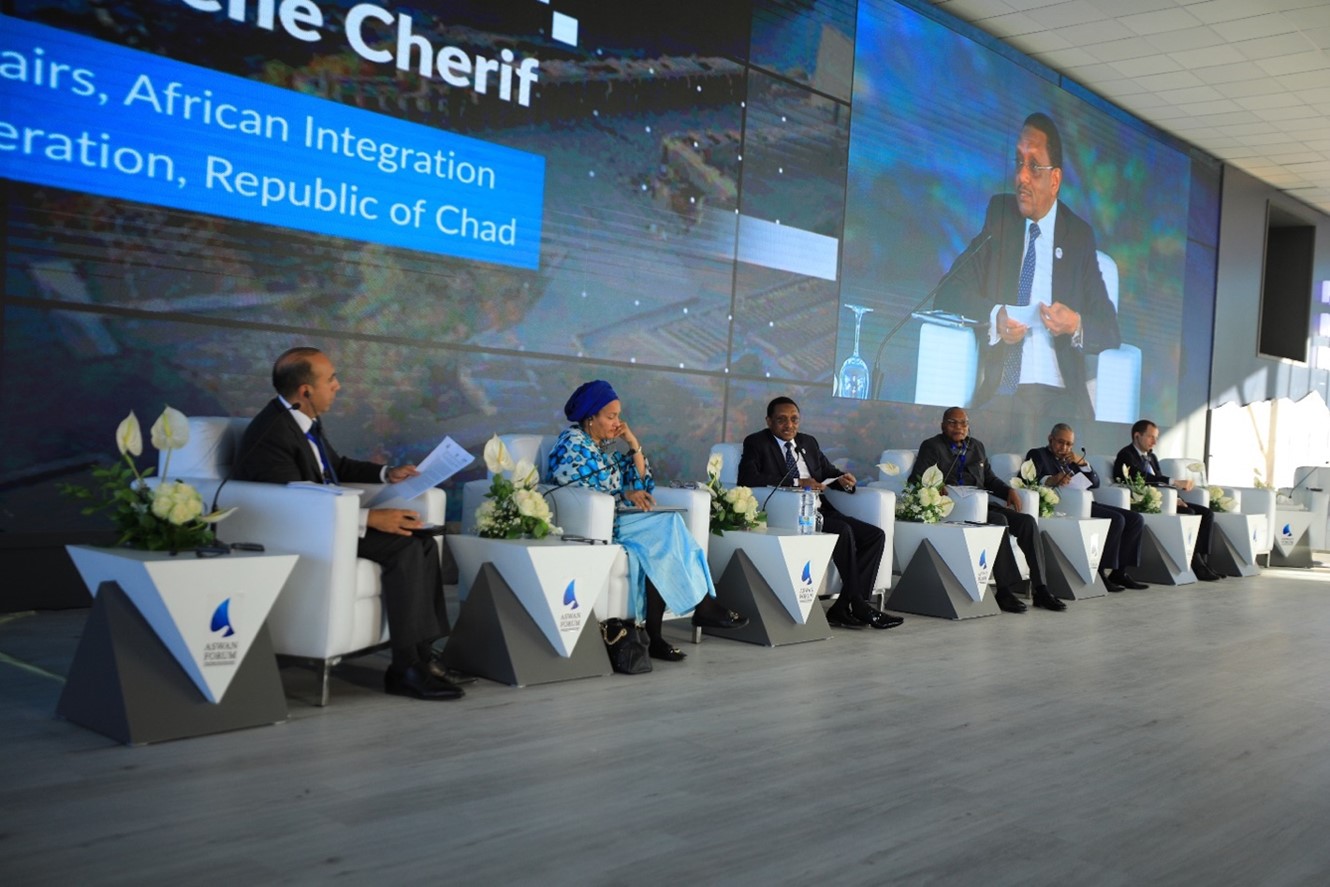 The Aswan Forum for Sustainable Peace and Development
Championing African solutions to African challenges through strengthening the links between policy and practice for the “peace-development nexus”
The Aswan Forum for Sustainable Peace and Development
Championing African solutions to African challenges through strengthening the links between policy and practice for the “peace-development nexus”

Challenges
By 2030, one in every five people in the world will live in Africa. Its potential in resources, urbanization, industrialization and economic diversification is unmatched. However, this great potential is under threat as a result of persistent and emerging challenges to peace, security and development, including conflict, terrorism, and forced displacement. First, a renewed focus on conflict prevention is required because it saves lives. Secondly, novel approaches must be found to deal with conflict and crises to meet sustainable development objectives and to sustain peace. Operationalizing the existing African Union’s (AU) normative frameworks and policies, and bringing conflict prevention and sustainable peace and development to the fore of the AU’s work contribute to tackling such pressing challenges.
Towards a Solution
Working towards the Sustainable Development Goals (SDGs) 5, 8, 16 and 17, the Aswan Forum, spearheaded by the Government of Egypt, aims to raise awareness of the imperative to integrate the prevention agenda into national development policies and efforts. In this way, it will advance “national ownership” across the continuum of peace interventions, expand the conversation on state-building and bring national actors and stakeholders to the negotiating table so as to uphold peace.
The Aswan Forum advocated for a reform process that promotes a paradigm shift from addressing conflict to preventing conflict in a manner that coalesces governments, leaders and high-level officials from national governments to advance an African conversation on novel approaches, programmes, financial instruments and partnerships to promote sustainable development, to alleviate poverty and to promote peace and stability across the continent, including through South-South and Triangular cooperation.
The Forum, held in December annually, presents concrete and action-oriented recommendations to African heads of states and governments, leaders from national governments, regional and international organizations and financial institutions, the private sector and civil society.
The process has enabled key stakeholders to create and develop institutional mechanisms; to develop normative, legal and policy frameworks; and to devise tools to prevent and manage conflicts; to rebuild post-conflict societies; to respond to forced displacement and terrorism; and to advance women’s empowerment. Internationally, the Forum aims to promote partnerships and to inform context-specific and the complex needs of operationalizing conflict prevention. The innovation framework of the Aswan Forum is its ownership by Africa combined with the support of international and regional partners.
As the Aswan Forum Secretariat, the Cairo International Centre for Conflict Resolution, Peacekeeping and Peacebuilding (CCCPA) leverages its unique position in the international/regional sphere to secure additional resources/expertise necessary for the implementation of activities in Africa, and utilizes opportunities for collaboration with other leading training and research institutions in Africa, through its membership of the Executive Committee of the African Peace Support Trainers Association (APSTA), utilizing best practices and lessons learned from the Global South.
CCCPA, in cooperation with the Egyptian Ministry of Foreign Affairs, UNDP and partners conducted two virtual preparatory expert workshops, entitled “Terrorism in the Shadow of the Pandemic, Climate-related Security and Development Risks assessment in Africa” and “Leaving No One Behind: Mainstreaming Migration in National Development Policies in the Sahel and Sahara Region”. These workshops preceding the Aswan Forum brought together more than 300 experts from national governments, regional and international organizations, civil society and think tanks to take stock of current opportunities and challenges to peace, security and development in Africa, and to develop context-specific and action-oriented recommendations to advance the implementation of the “sustainable development” and “sustaining peace” agendas in Africa.
The outcome of these workshops was the Aswan Forum report which represents the collation of non-attributable opinions and recommendations shared by official and expert participants. The report was issued before the Forum and was intended as a forward-looking, action-oriented and thought-provoking conversation starter.
African Governments and their partners have been encouraged to advance the implementation of the AU Operational Guidance Notes on Disarmament, Demobilization and Reintegration (DDR) and the AU Transitional Justice Policy. One example is the "Virtual Foundational Training on DDR with Special Emphasis on Asymmetrical Contexts", which brought together 32 participants from 13 African countries. This included government officials from Burkina Faso and Nigeria, representatives from the national DDR Commission in South Sudan, the AU and regional organizations, including the Lake Chad Basin Commission, the Multinational Joint Task Force, the Southern African Development Community, the Neem foundation and different United Nations missions in Africa.
Women and youth empowerment are mainstreamed in the AU Commission Post-Conflict Reconstruction and Development (AUC-PCRD’s) planning and programme design and implementation processes where a virtual dialogue on “Women’s Leadership in Conflict Prevention and Sustaining Peace: Challenges and Opportunities in a New Normal” took place in November 2020.
Accordingly, African Governments and the AU have been invited to actively contribute to shaping a reinvigorated multilateralism at the international level and to address new emerging risks to sustainable peace and security. Moving forward, crisis preparedness must be integrated into national policies and systems. In line with the notion of national ownership, African Governments must invest in building resilient and viable institutions at the national and local levels while ensuring the promotion of inclusive governance through a whole-of-government approach.
As part of the fourth comprehensive review of the United Nations peacebuilding architecture, the 2020 report of the United Nations Secretary-General Peacebuilding and sustaining peace recognized the Aswan Forum as an example of “Member States and regional organizations… promoting conflict prevention and advancing integrated approaches”.
Contact Information
Countries involved
Supported by
Implementing Entities
Project Status
Project Period
URL of the practice
Primary SDG
Primary SDG Targets
Secondary SDGs
Secondary SDG Targets
Similar Solutions
| NAME OF SOLUTION | Countries | SDG | Project Status | |
|---|---|---|---|---|
100% Online Electronic Apostille and Legalization Sharing Colombia’s effective e-government system with other countries in the region |
Chad, Comoros, Egypt, Gabon, Niger, Nigeria, Senegal, Togo | 16 - Peace and Justice Strong Institutions | Completed | View Details |
360-Degree Awareness Tool to Fight COVID-19 Raising awareness and ensuring public wellbeing through a one-stop platform for fighting COVID-19 in Bangladesh |
Chad, Comoros, Egypt, Gabon, Niger, Nigeria, Senegal, Togo | 16 - Peace and Justice Strong Institutions | Ongoing | View Details |
Accelerating the Implementation of African Union Treaties in São Tomé and Príncipe South-South learning from the Beninese judicial system’s experience in the application of human rights treaties to its national law |
Chad, Comoros, Egypt, Gabon, Niger, Nigeria, Senegal, Togo | 05 - Gender Equality | Completed | View Details |
Accelerating the Transformational Shift to a Low-Carbon Economy in Mauritius Towards supplying 35 percent of the country’s energy needs with renewables by 2025 |
Chad, Comoros, Egypt, Gabon, Niger, Nigeria, Senegal, Togo | 05 - Gender Equality 09 - Industry, Innovation and Infrastructure 13 - Climate Action | Ongoing | View Details |
Accelerator Labs Network Following collective intelligence methods to address emerging sustainability challenges and the growing demand for local solutions |
Chad, Comoros, Egypt, Gabon, Niger, Nigeria, Senegal, Togo | 08 - Decent Work and Economic Growth 13 - Climate Action | Ongoing | View Details |


